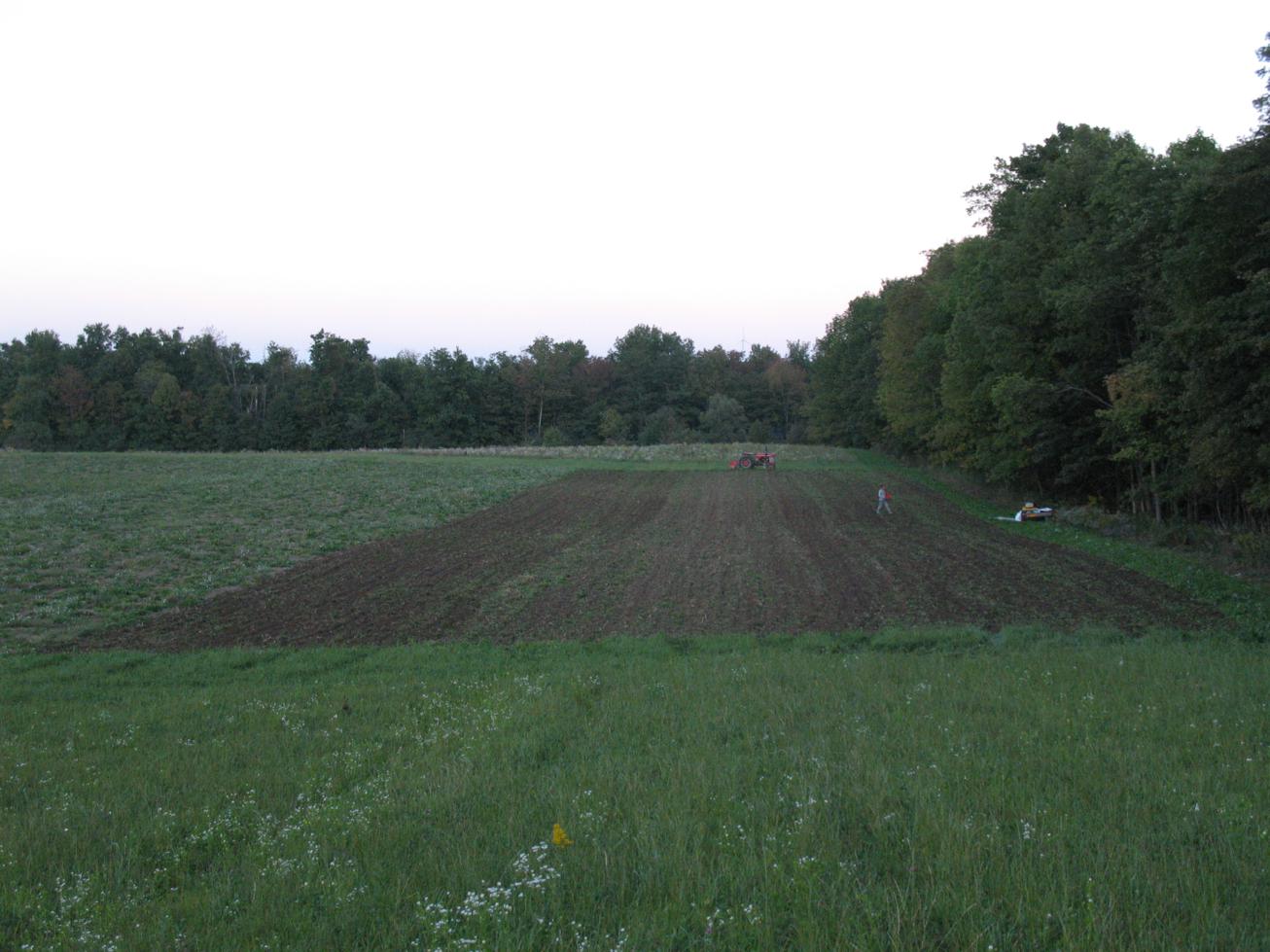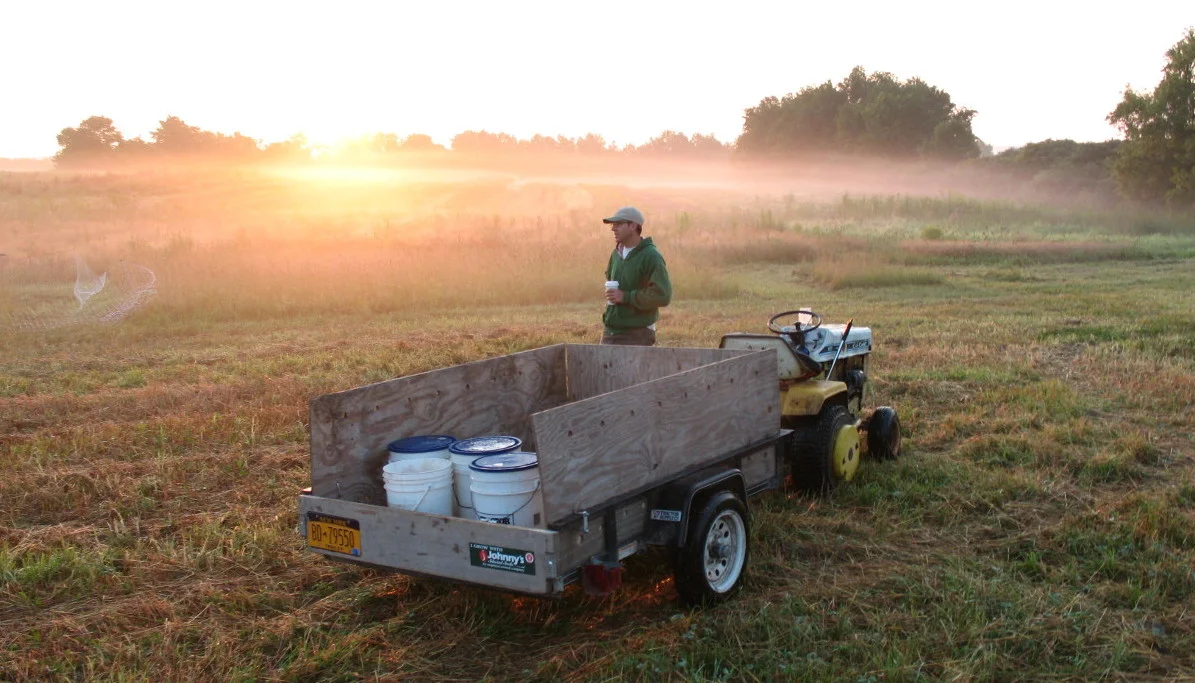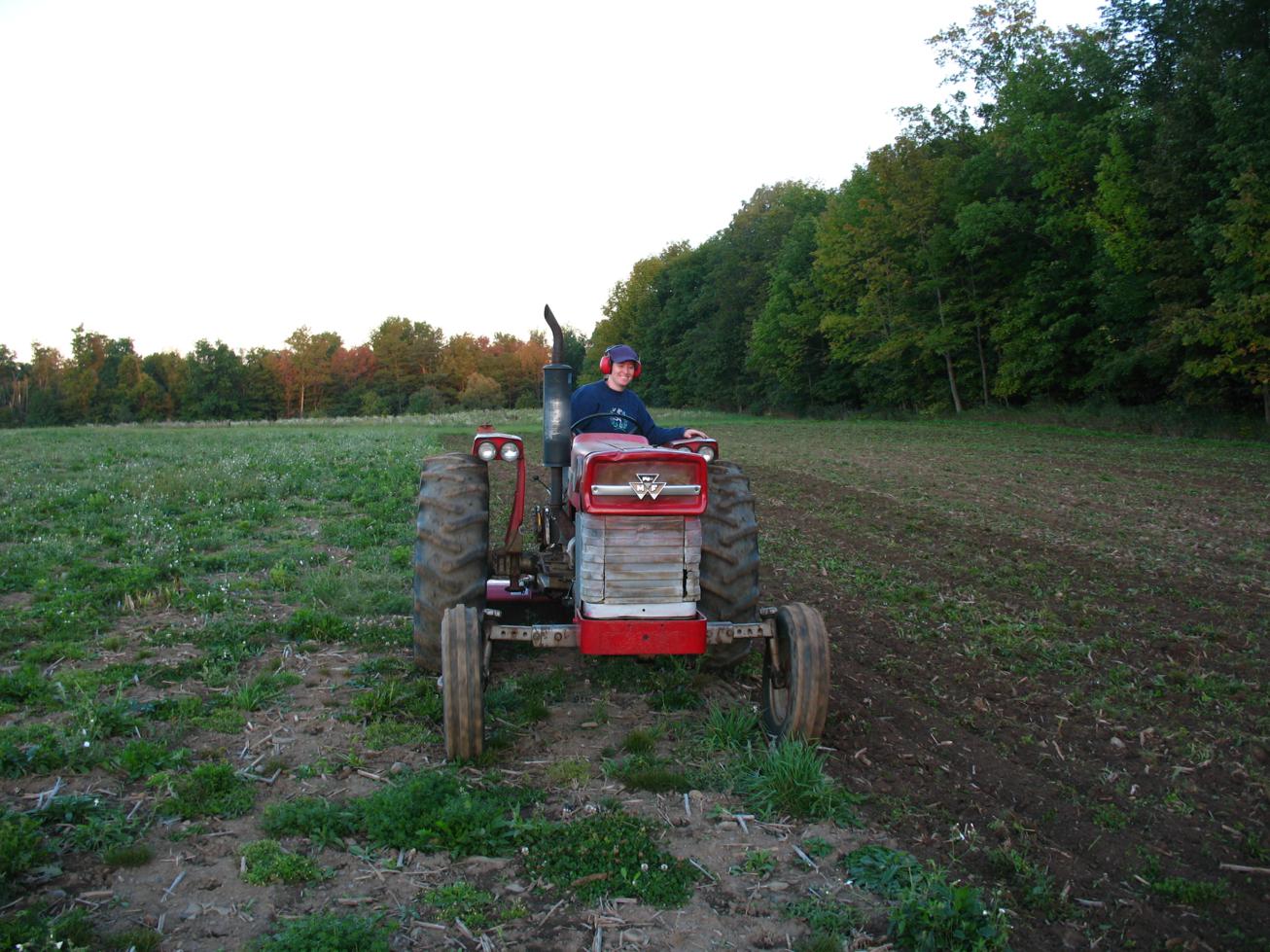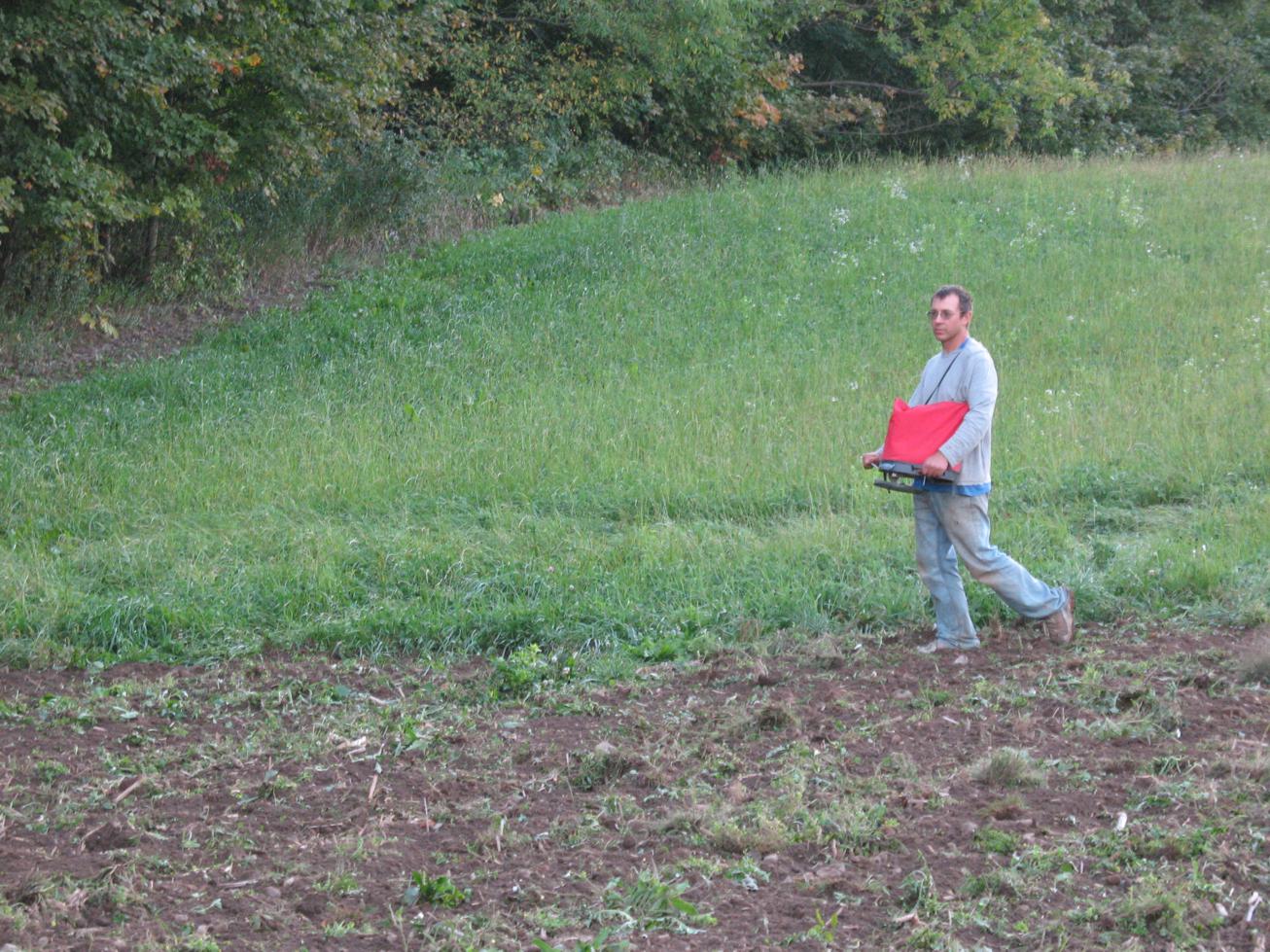Planting Cover Crops--Winter Rye!
/This growing season is nowhere near over, but we are already doing a fair bit of work to prep for next growing season! As crops finish producing, we've been tilling them in and putting buckwheat in the beds in their place. At this point, most of the buckwheat is mowed down and we are planting our winter cover crops. Cover crops are important on most farms, particularly newer ones like ours, where the soils can use some improving.

"Cover crops" or "green manures" include a wide range of plants. They are crops that are planted, not to be harvested for anything in particular, but rather to cover and protect the soil, or to be tilled in green to enrich the soil.
Our cover crops will add organic matter to the soil (this will happen when we till them in next spring), which helps improve both soil drainage and water retention. They also protect the soil from compaction and leaching over the fall and winter--bare soil can be beaten down and compacted by rain and snow (this is what happened in our fields over the past few winters), which makes it harder for plants to grow the following year. Also, when there is a lot of rain, nutrients can drain out of the soil. Cover crop plants hold on to these nutrients with their roots. Finally, some cover crops (those in the pea or legume family) are able to pull nitrogen, a key plant growth nutrient, out of the air and fix it in the soil in a form that the following crops can use (in essence, free fertilizer!).
Since we don't yet have animals and their manure on the farm to make compost to improve our soils, we are relying on these cover crops to help us out on the nutrient front.
The crops we are using are: oats with field peas, winter rye with hairy vetch, and straight winter rye. The oats and peas will grow this fall and die over the winter, leaving a mulch layer of plant growth protecting the ground--we are planting them in the first areas that we will work up next spring. The winter rye and hairy vetch will keep growing next spring, so we are planting them in areas that will have summer crops. Peas and vetch both are legumes that fix nitrogen, so they are key in these mixes.
Winter rye, when tilled under in the summer, has alleopathic properties as it decomposes. This means it will inhibit any other seeds from germinating near it, which has the added benefit of helping us against weeds! For the straight winter rye, which we are growing on areas slated for fall crops in 2013, we will be chopping down the mature rye stalks to use for mulch in between beds of the summer crops. Let's hope we get the rest of our cover crops in the ground before Tuesday's rain!



